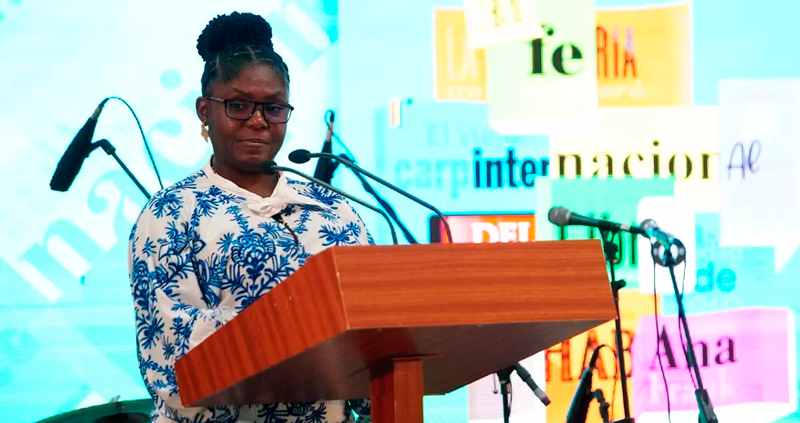During the United Nations Permanent Forum on Indigenous Issues, Vice President Francia Márquez once again made a controversial petition requesting that the use of coca leaf be finally decriminalized in the country’s ethnic and indigenous territories.
In the midst of the Forum that will take place between March 6 and 11 in Colombia, Vice President Márquez was clear in pointing out that if the criminalization of this plant continues in ancestral territories, it will not be possible to dismantle the conflict.
“The time has come to sincerely put the debate on decriminalizing the use of coca leaf in ethnic and indigenous territories, continuing to criminalize the use of coca leaf will not allow Colombia to achieve Total Peace” .
The Colombian vice president, just as the government bench has done on previous occasions, highlighted the problem in the current drug policy that has led the war to remote places where armed structures fight for territorial control.
“Because we know that it has been this criminal, racial policy that has us as peoples suffering terrible humanitarian crises, it is the drug trafficking imposed from that criminal policy that today is generating armed conflicts in ethnic territories.”
Finally, Márquez exposed an unfortunate case that occurred in an Afro-descendant community located in Chocó, where the vice president pointed out that the consequences of the conflict and drug trafficking have seriously affected the young people of the territory who have chosen to commit suicide as a solution. “There is no way that the indigenous youth of Pogue, over 60, are committing suicide as an escape from war.”
The situation between Colombia and the United States for the eradication of crops has been cautious in recent months, the administration of President Petro has constantly highlighted that it is not only going against consumers or illicit crops, emphasizing the obsolescence of the methods of the ‘war on drugs’.
Precisely the president of the Historical Pact has highlighted the intention of giving new meaning to ancestral plants such as the coca leaf, in the perception of foreign authorities.
Colombia will accompany Bolivia in the petition before the United Nations Commission on Narcotic Drugs so that the coca leaf ceases to be part of the list of prohibited substances. This request would not include cocaine, the alkaloid derived from the plant that is central to the national drug trade.
Laura Gil, the Vice Minister of Multilateral Affairs of the Ministry of Foreign Affairs, stated: “We are going to vindicate the legal use of the coca leaf, we will do it alongside Bolivia”, as part of the presentation before the UN Commission of the new approach of the drug policy proposed by the government of President Gustavo Petro.
The 66th session will take place between March 13 and 17 in Vienna, (Austria), where, according to Gil, the bases of the new drug policy that is being built between the Ministries of Justice and Defense that seeks to address the problem will be presented. from a new perspective.
The deputy minister explained that she will expose a disproportion of sentences in the different links of the drug trafficking chain, in which they propose to punish the most powerful and protect the most vulnerable, such as peasants, who receive disproportionate punishments.
Bolivia championed the request for the legal use of the coca leaf more than a decade ago, when it resigned from the Commission on Narcotic Drugs. In 2012 it joined again, but presented a reservation about chewing the plant, which is part of its culture.
Only 15 countries opposed Bolivia’s reservation and several adhered, so the country was able to once again be part of that Commission. Now, both countries “consider that it is time to put the issue back on the table” and are discussing how to get the coca leaf removed from the prohibition list. with Infobae
